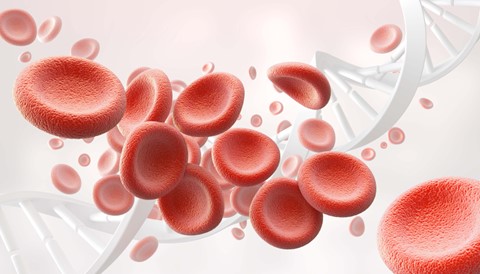Anemia is when the body lacks healthy red blood cells to provide oxygen to the body tissues.
Anemia is a blood disorder in which your body produces a lower-than-normal amount of healthy red blood cells or hemoglobin. In such cases, the body does not get enough oxygen-rich blood, i.e., deficiency in the oxygen-carrying capacity of the blood, which cannot work the way it should and causes many health problems.
You can also develop anemia if you lose too much blood from your bloodstream.
Normal hemoglobin levels:
13.2 to 16.6 g/dL in men
11.6 to 15 g/dL in women
When To See a Doctor?
When you have anemia, there is a reduced amount of oxygen in the body, which can lead to the following symptoms:
- Weakness
- Shortness of breath
- Chest pain
- Irregular heartbeat
- Ringing or whooshing sound in your ears
- Headache
- Altered taste
- Cold hands or feet
- Dizziness
- Pale or yellow skin
Make an appointment with your doctor if you experience one or more of these symptoms.
What Causes Anemia?
- When your body loses too many red blood cells (low hemoglobin), the blood loss may be gradual, such as in a woman having heavy periods, because of severe bleeding
- When your body is not able to produce enough red blood cells (if your diet does not contain enough iron, vitamin B12, or folic acid)
- When your body is destroying the red blood cells (malaria or kidney failure)
Are You at Risk of Anemia?
Many with anemia are at risk because of poor diet, infections, and other conditions.
If you have any of the following conditions, you might be at greater risk for developing anemia:
- Rheumatoid arthritis (pain and swelling in the joints)
- Cancer
- Thyroid disease
- Kidney disease
- Liver disease
- Inflammation of tissues in your digestive tract (Inflammatory bowel disease)
Anemia is higher in menstruating or pregnant women and older adults.
Is Anemia Preventable?
You can prevent and may even be able to cure anemia through diet or by taking supplements. A healthy diet ensures enough nutrients for your body to produce healthy blood cells. These nutrients include:
- Iron-rich foods (beef, dried fruits, dark green leafy vegetables, and nuts)
- Vitamin B-12 (dairy products and meat)
- Folic acid (citrus juices, legumes, dark green leafy vegetables, and fortified cereals)
- Vitamin C (citrus fruits)
A multivitamin supplement daily will also help prevent nutritional anemia.
How To Know If You Are Anemic?
Your doctor will diagnose anemia with a physical exam and blood tests to detect the severity of your anemia and check for probable causes.
Other tests to detect anemia are:
- Complete Blood Count: Check your hemoglobin and red blood cell levels. Any deviation in average values confirms the diagnosis of anemia
- Bone Marrow Test: This test shows whether your bone marrow is healthy and makes enough blood cells
How Is Anemia Treated?
Talk to your doctor about the symptoms you are experiencing and give information about your diet, lifestyle, and family health history.
- Mild deficiency can be self-managed with a healthy diet and additional supplements
- Blood transfusion is done in severe cases when medication cannot help
Anemia is a common condition that can have a significant impact on a person’s quality of life if left untreated. It is important to recognize the symptoms of anemia and seek medical attention for diagnosis and treatment. A balanced diet rich in iron and other nutrients, as well as lifestyle changes such as quitting smoking and reducing alcohol consumption, can help prevent anemia. With proper diagnosis and treatment, people with anemia can regain their energy and improve their overall health and well-being.

